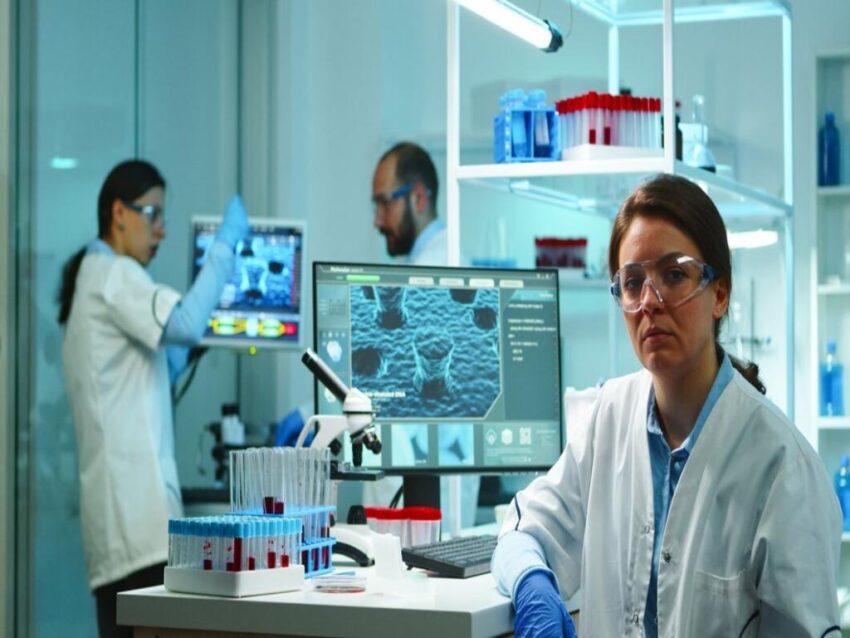Innovation
According to Dr. Curtis Cripe, an expert in neuroengineering, biomedical innovation is transforming treatments for cognitive health. With advancements in technology, new strategies are being developed to address cognitive impairments, offering hope for individuals affected by neurological conditions. Innovations in diagnostics, therapy, and brain monitoring are changing the landscape of cognitive healthcare.
Cognitive Health and Its Importance
Cognitive health involves essential brain functions such as memory, reasoning, attention, and problem-solving. Maintaining these functions is vital for independence and quality of life. Cognitive impairments can stem from various causes, including age-related decline, traumatic brain injuries, strokes, and neurodegenerative diseases like Alzheimer’s and Parkinson’s.
Recognizing early signs such as forgetfulness, difficulty concentrating, or confusion is crucial. Early intervention plays a major role in slowing cognitive decline and improving outcomes. Timely diagnosis allows for more targeted therapies, increasing the chances of recovery or stabilization.
The Role of Biomedical Innovation
Biomedical innovation has revolutionized the treatment of cognitive disorders. Neuroengineering, a field combining engineering with neuroscience, has led to the development of technologies like brain-computer interfaces (BCIs), neurofeedback systems, and real-time brain imaging. These tools offer deeper insights into brain function and more efficient rehabilitation strategies.
As perDr. Curtis Cripe, these technologies enable more personalized treatments. BCIs allow patients to interact directly with devices, aiding in communication and control for those with limited mobility. Neurofeedback systems help retrain the brain by providing visual or auditory feedback in response to brain activity. These advancements are particularly useful in memory enhancement, attention training, and behavioral therapies.
Additional examples of biomedical innovation include:
- Wearable EEG headsets that monitor brain activity in real time.
- Software applications that adjust cognitive training exercises to suit the individual’s progress.
- Virtual reality environments that simulate real-life situations to improve memory retention.
- Non-invasive stimulation methods such as transcranial magnetic stimulation (TMS).
These technologies contribute to more engaging and adaptive treatment plans, increasing patient motivation and long-term success.
Interdisciplinary Approaches to Treatment
Addressing cognitive health challenges requires collaboration across multiple disciplines. Many experts advocate for integrating neuroengineering, psychology, behavioral medicine, and physical therapy. This holistic view supports more comprehensive rehabilitation for patients experiencing memory loss or cognitive decline.
Personalized rehabilitation programs may include:
- Repetitive cognitive tasks to reinforce memory and learning.
- Physical activities paired with mental exercises.
- Feedback-driven interventions that adapt in complexity over time.
- Lifestyle coaching focused on diet, sleep, and stress management.
These approaches help rewire neural circuits, strengthen brain plasticity, and restore functionality. Treatment plans are continually adjusted based on patient progress, ensuring a dynamic and responsive recovery path.
Future Directions in Cognitive Health
The future of cognitive health treatment lies in AI, machine learning, and genomics. As precision medicine evolves, therapies will increasingly rely on individual patient profiles. Some envision a future where treatment plans are not only tailored but predictive, identifying risks before symptoms emerge.
Promising directions include:
- AI-powered platforms that analyze behavioral and neural data.
- Machine learning models that suggest the most effective treatments.
- Genomic tools that reveal genetic predispositions to cognitive disorders.
- Cloud-based platforms that allow teams to collaborate on care delivery.
Such innovations will improve accessibility and effectiveness, especially for remote or underserved populations.
Work in neuroengineering and biomedical innovation has created new pathways for treating cognitive health disorders. With continuous advancements in technology, the potential for improved outcomes is expanding. By integrating innovative tools and interdisciplinary collaboration, medical professionals are redefining care. According to Dr. Curtis Cripe, the connection between cognitive health and biomedical innovation continues to unlock new solutions for diagnosis, treatment, and long-term brain health.

